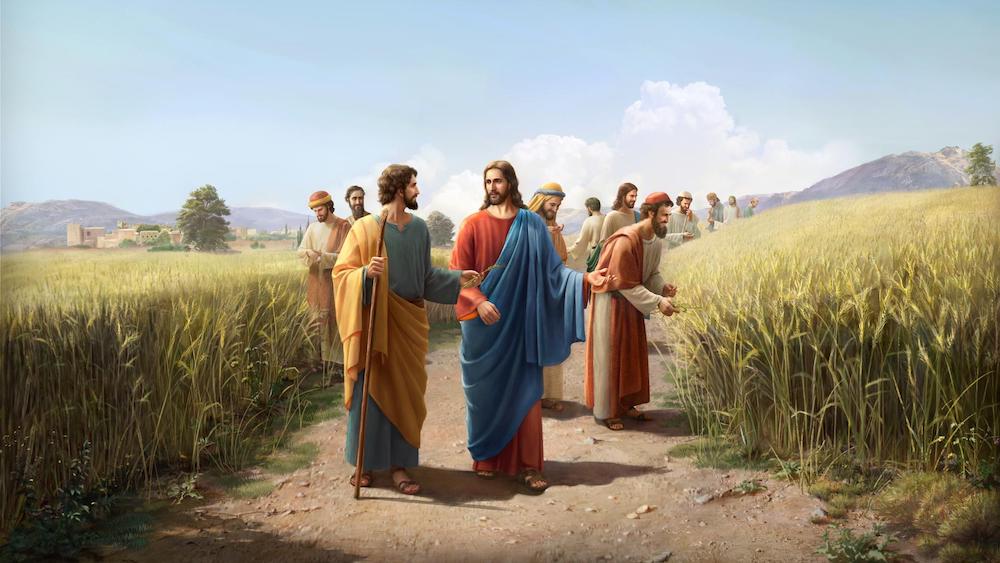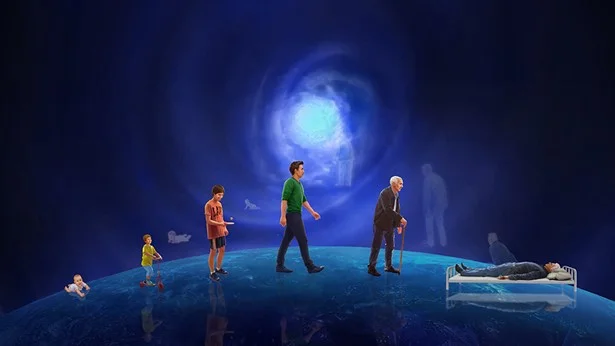The Third Part: God Sustains the Environment and Ecology to Nurture Mankind
God created all things and established boundaries for them; among them He nurtured all kinds of living things. Meanwhile, He also prepared different means of survival for mankind, so you can see that human beings do not just have one way to survive, nor do they have just one type of environment for survival. We talked before about God preparing various types of food and water sources for humans, which is critical for allowing mankind’s life in the flesh to continue. However, among this mankind, not all people subsist on grains. People have different means of survival due to differences in geographical environments and terrains. These means of survival have all been prepared by God. So not all humans are primarily engaged in farming. That is, not all people get their food from growing crops. This is the third part that we are going to talk about: Boundaries have arisen due to mankind’s various different lifestyles. So what other types of lifestyles do humans have? In terms of different food sources, what other kinds of people are there? There are several primary types.
The first is a hunting lifestyle. Everyone knows what that is. What do people who live by hunting eat? (Game.) They eat the birds and the beasts of the forest. “Game” is a modern word. Hunters do not think of it as game; they think of it as food, as their daily sustenance. For example, they get a deer. When they get this deer, it is just like a farmer obtaining food from the soil. A farmer gets food from the soil, and when he sees this food, he is happy and feels at ease. The family will not be hungry with crops to eat. The farmer’s heart is free from anxiety and he feels satisfied. A hunter also feels at ease and satisfied when looking at what he has caught because he does not have to worry about food anymore. There is something to eat for the next meal and there is no need to go hungry. This is someone who hunts for a living. The majority of those who subsist on hunting live in the mountain forests. They do not farm. It is not easy to find arable land there, so they survive on various living things, various types of prey. This is the first kind of lifestyle that is different from ordinary people.
The second type is a herder’s way of life. Do people who herd animals for a living also farm the land? (No.) So what do they do? How do they live? (For the most part, they herd cattle and sheep for a living, and in the winter they slaughter and eat their livestock. Their staple food is beef and mutton, and they drink milk tea. Although herders are busy all four seasons, they eat well. They have plenty of milk, dairy products, and meat.) People who herd animals for a living primarily eat beef and mutton, drink sheep’s milk and cows’ milk, and ride cattle and horses to herd their animals in the field with the wind in their hair and the sun on their faces. They do not face the stresses of modern life. They gaze all day at broad expanses of blue skies and grassy plains. The great majority of people who subsist on herding live on grasslands, and they have been able to continue their nomadic way of life for generations. Although life on the grasslands is a little lonely, it is also a very happy life. It is not a bad way of life!
The third type is the fishing way of life. A small portion of humanity lives by the ocean or on small islands. They are surrounded by water, facing the ocean. These people fish for a living. What is the source of food for those who fish for a living? Their food sources include all types of fish, seafood, and other products of the sea. People who fish for a living do not farm the land, but instead spend every day fishing. Their staple food consists of various types of fish and products of the sea. They occasionally trade these things for rice, flour, and daily necessities. This is a different lifestyle led by people who live near the water. Living close to water, they rely on it for their food, and make their living from fishing. Fishing gives them not only a source of food, but also a means to a livelihood.
Aside from farming the land, humanity lives for the most part according to the three ways of life mentioned above. However, the great majority of people farm for a living, with only a few groups of people who live by herding animals, fishing, and hunting. And what do people who live by farming need? What they need is land. Generation after generation, they live by planting crops in the ground, and whether they plant vegetables, fruits, or grains, it is from the earth that they obtain their food and their daily necessities.
What are the basic conditions underpinning these different human lifestyles? Is it not absolutely necessary that the environments in which they are able to survive be preserved on a basic level? That is, if those who subsist on hunting were to lose the mountain forests or the birds and the beasts, the source of their livelihood would be gone. The direction in which this ethnicity and this sort of people should go would become uncertain, and they might even disappear. And what of those who herd animals for their livelihood? What do they rely upon? What they truly depend on is not their livestock, but the environment in which their livestock are able to survive—the grasslands. If there were no grasslands, where would the herders graze their livestock? What would the cattle and sheep eat? Without the livestock, these nomadic peoples would have no livelihood. Without a source for their livelihood, where would these peoples go? It would become very difficult for them to continue to survive; they would not have a future. If there were no sources of water, and rivers and lakes completely dried up, would all those fish, which depend on water to live, still exist? They would not. Would these people who depend on the water and the fish for their livelihood continue to survive? When they no longer have food, when they no longer have the source of their livelihood, these peoples would not be able to continue to survive. That is, if any given ethnicity should ever run into a problem with their livelihood or their survival, then that ethnicity would no longer continue, and they could disappear from the face of the earth and become extinct. And if those who farm for a living lost their land, if they could not cultivate all kinds of plants and derive food from those plants, then what would the outcome be? Without food, would people not starve to death? If people are starving to death, would that race of human beings not be wiped out? So this is God’s purpose in maintaining different kinds of environment. God only has one purpose in maintaining different environments and ecosystems and all the different living beings within them—and that is to nurture all kinds of people, to nurture people who live in different geographical environments.
If all the things of creation lost their own laws, they would no longer exist; if the laws of all things were lost, then the living beings amongst all things would not be able to continue. Humanity would also lose their environments upon which they depend for survival. If humanity lost all of that, they would not be able to continue, as they have been doing, to thrive and multiply generation after generation. The reason human beings have survived until now is because God has supplied them with all the things of creation to nurture them, to nurture mankind in different ways. It is only because God nurtures mankind in different ways that mankind has survived until now, the present day. With a fixed environment for survival that is favorable and in which the natural laws are in good order, all the different kinds of people of the earth, all the different races, can survive within their own prescribed areas. No one can go beyond these areas or the boundaries between them because it is God who has delineated them. Why would God delineate boundaries in this way? This is a matter of great importance for all of mankind—truly of great importance! God delineated a range for each kind of living being and fixed the means of survival for each type of human being. He also divided the different types of people and different races on the earth and established a range for them. This is what we will discuss next.
—The Word, Vol. 2. On Knowing God. God Himself, the Unique IX





